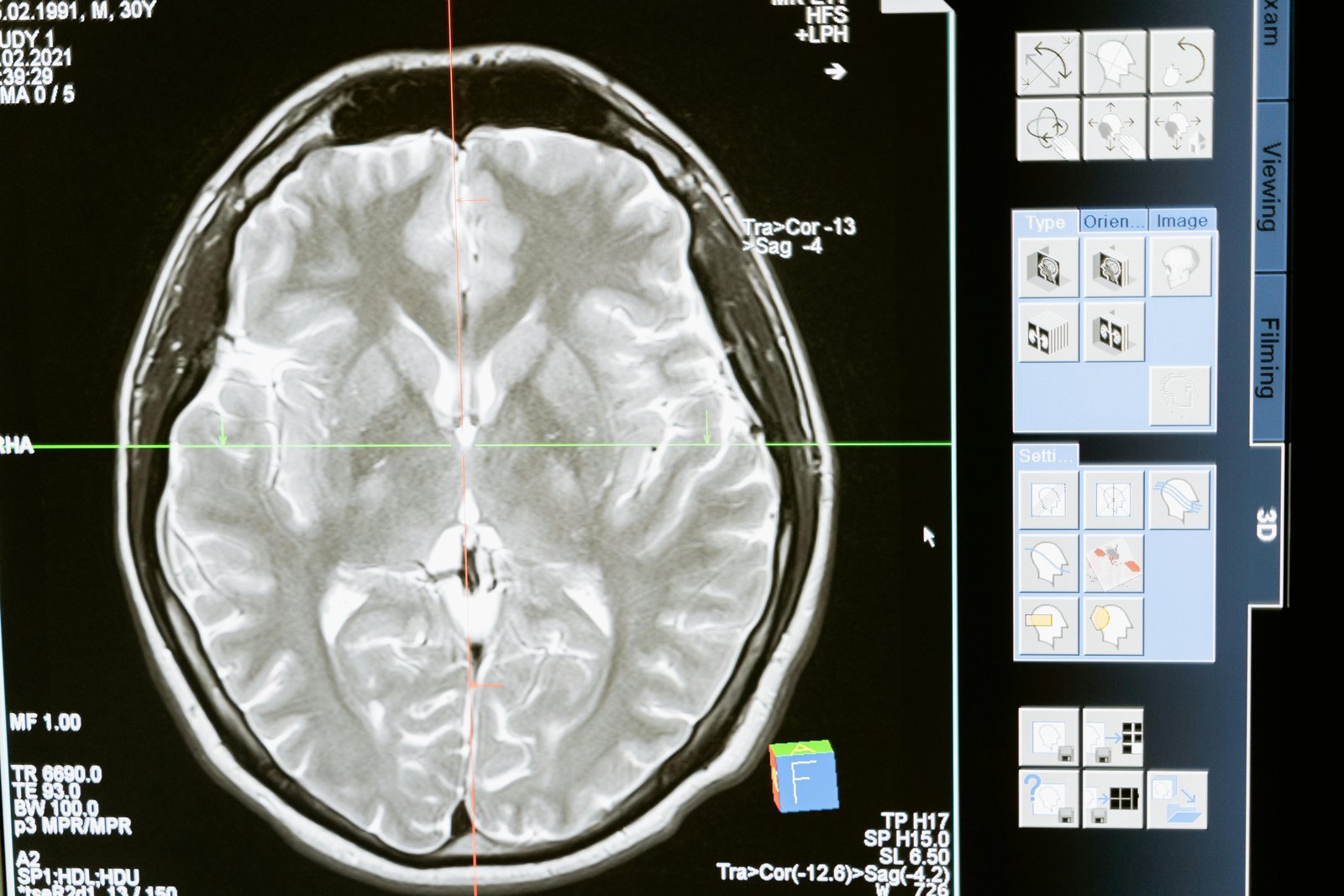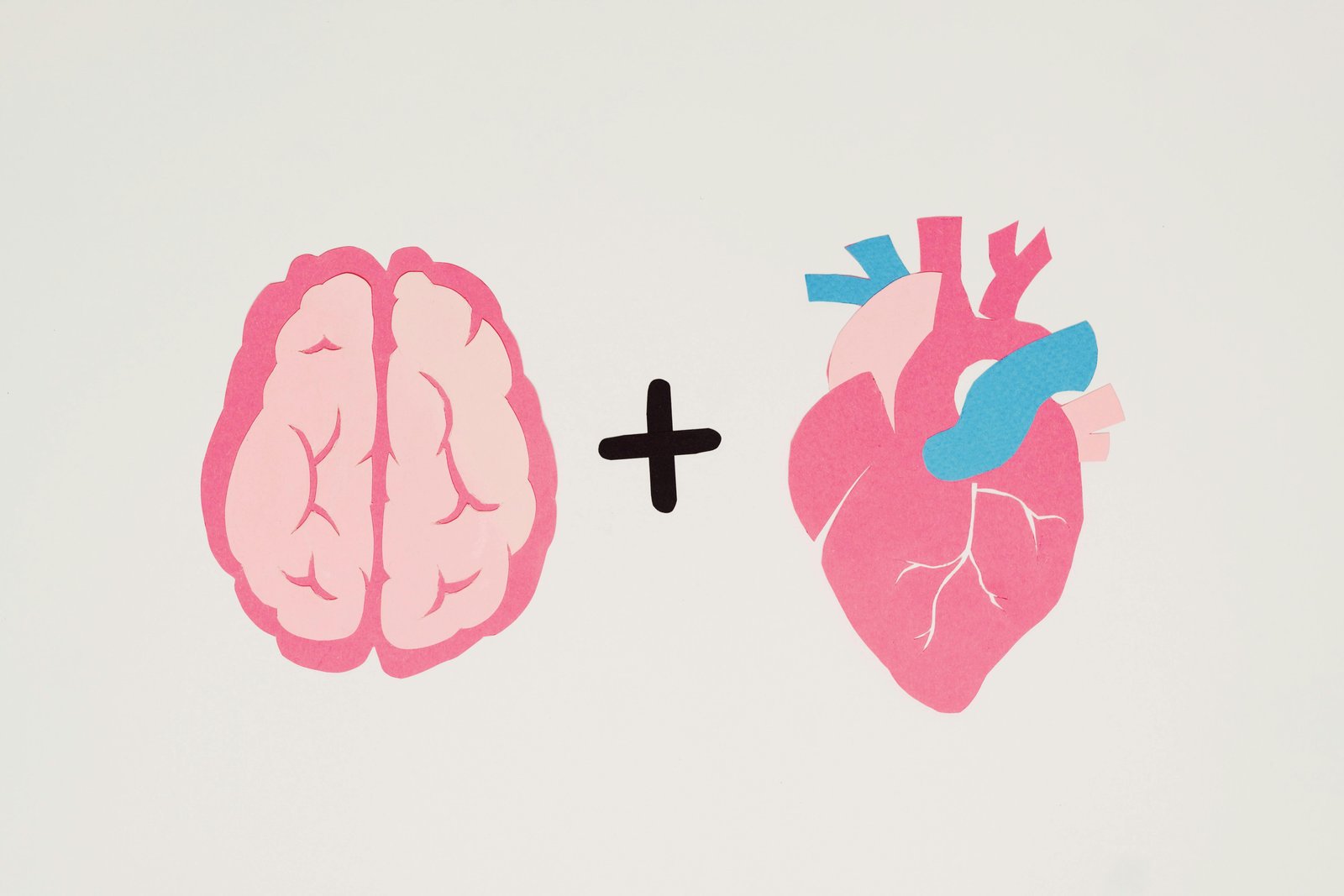Stress, as a broader term, is used frequently by everyone, very often with the main intent casualized. Stress, however, can have both short-term and long-term impacts on an individual when not taken care of. The World Health Organization, more commonly known as WHO, states that ‘stress’ can be defined as a state of worry or mental tension caused by a difficult situation. Stress is a natural human response that prompts us to address challenges and threats.
Stress, based on how they are experienced along with how it affects you, can be classified as below:
Eustress is a form of stress that challenges you in a positive direction and helps you channel your energy toward personal growth. This is often accompanied by a “feel good” factor about themselves and their lives. It also helps them set positive goals for themselves and their future.
Distress is comparatively used more frequently; distress signifies the negative impact of stress, both on the body and mind. People going through distress tend to have depleting and negative thoughts about themselves. Physically, it is accompanied by lethargy and fatigue. Distress can be caused by several factors like work pressure, financial concerns, or prolonged health issues.
Understanding stress from its origin is the way to deal with it effectively because not doing so can seriously affect your health and well-being in the short and long term, irrespective of age, gender, or background.
Short-term stress: These are temporary reactions to immediate challenges like a job interview or even an upcoming exam that can trigger this. In cases like these, the body releases hormones like adrenaline and cortisol due to being in the fight or flight mode. In such situations, there is a spike in heart rate and alertness. Although short-term stress can be motivating and help positively with problem-solving. However, a prolonged stretch of short-term problems can lead to fatigue and irritation.
Long-Term Stress: Long-term stress is nothing but prolonged short-term stress and is referred to as chronic stress. It can be caused by factors like work stress, financial difficulties, relationship issues, health concerns, and a few other deep-rooted issues. Dealing with chronic stress can eventually lead to both physical and mental ailments like high blood pressure, depression, weak immunity, and even cardiac disorders. One must focus on making lifestyle changes, and coping strategies, and ask for professional help as and when required.
Examining both physiological and psychological can help one to have a detailed understanding of how the mind and body interact with each other in critical situations, by being aware of hormonal changes and nervous system reactions to emotional reactions and behavioral patterns. This enables opportunities for better diagnosis, treatment plans, and preventive measures at the right time to deal with complicated concerns like depression, anxiety, or any other chronic ailments.

Physiological Aspects of Stress
The physiological aspect of stress refers to a person’s physical response to the stress factors that they are going through. There are multiple physical aspects of stress are stated below:
- An active sympathetic nervous system
- Stress hormones release
- Heart rate and blood pressure
- Decreased immune functions
- Muscle spasms and tensions
- Respiratory and cardiovascular changes in the body
- Issues in the digestive system
The Stress Response System
The stress response is referred to as the “Fight or Flight” reaction that the body initiates when under any perceived threat. This happens with the coordination of the brain, the nervous system, and the endocrine system. Here's an overview:
What triggers the stress response?
A person, when encountering a stressor - it can be physical danger or an emotional tension/trauma, the brain perceives the threat and initiates a response to that threat. In this process, there is the involvement of the amygdala which identifies the threat and shares the distress signal, and the hypothalamus. It works as the control center, creating, and interacting with the body to initiate the stress response.
The sympathetic nervous system
The hypothalamus, on initiating the stress response, activates the sympathetic nervous system that further initiates the release of adrenaline from the adrenal glands. This release leads to an increasedheart rate, rapid breathing, increased alertness, and energy mobilization that is caused by the blood sugar and fat release so as to supply energy to the muscles.
The HPA Axis (Hypothalamus-Pituitary-Adrenal Axis)
To deal with the longer-term stress, the HPA Axis is activated. In this case, the hypothalamus releases CRH (Corticotropin-Releasing Hormone), signaling the pituitary gland. The Pituitary Gland then releases the ACTH (Adrenocorticotropic Hormone) that travels to the adrenal glands. Following this, the adrenal gland releases cortisol, which is the primary stress hormone. The release of cortisol helps the body remain in a heightened sense of alertness and increases the sugar level in the bloodstream to maintain energy in the body.
Stress Response - Effects on the body
Stress Response leads to physiological changes – the heart rate and blood pressure increase to ensure proper oxygen delivery to the muscles and brain. Pupils are often dilated for improved vision. Digestion is suppressed as the body’s main priority at the time is to conserve its energy for preservation against perceived threats. It is also for the very same reason that immunity functions are also suppressed.
Deactivation
Once the threat has passed, the parasympathetic nervous system gets activated, which calms the body down. This helps the body return to its normal state. The heart rate slows down, normal digestion resumes, reducing the cortisol level.
The main reason for our body to have a stress response is to protect ourselves in threatening situations by preparing the body for physical actions. However, in case of chronic stress, this response can remain activated for longer periods, leading to anxiety, a weakened immune system, and high blood pressure.

Hormonal Response
Hormonal response to stress is referred to as the body’s reaction to stress, involving the brain and the endocrine system; primarily the Hypothalamic-Pituitary-Adrenal (HPA) axis, the sympathetic nervous system along with hormones like adrenaline, cortisol, and norepinephrine being released into the bloodstream.
Role of cortisol and adrenaline
A part of the stress hormone trio mentioned previously, cortisol is considered the primary stress hormone and is produced by the adrenal gland vis a vis the activation of the Hypothalamic-Pituitary-Adrenal (HPA) axis. Cortisol helps maintain glucose levels in the blood by releasing sugar into the bloodstream. To maintain the sugar level in the blood, it also reduces the efficacy of the insulin to avoid too much absorption of sugar. It also breaks down proteins and fats which is necessary for the production of energy which is of utmost importance during that time, thereby helping in metabolism. Cortisol also tends to curb all the non-essential functionality of the body such as reproduction, digestion, growth, and immune responses to save energy. The anti-inflammatory properties of cortisol also control the immune response and prevent the body from going into an overreaction. Hippocampus is responsible for memory. When affected by the cortisol hormone for a short term, it can make one more attuned to their surroundings and can improve attention and focus. Once the stressor is gone, cortisol allows the body to get back to its normal state by managing metabolism, letting the immune system function normally, and reducing inflammation.
The sympathetic nervous system's immediate response to stress is adrenaline. Adrenaline causes an increase in the heart rate and blood pressure to pump more oxygen and glucose-rich blood to the brain and muscles to help at the time of an impending threat. It allows for more intake of oxygen into the lungs after having the muscles of the airway relaxed. Like cortisol, adrenaline too halts the non-essential functionalities of the body by diverting the blood flow from the non-essential system of the body. During any form of stress or trauma, adrenaline keeps the body more focused, alert, and aware. Adrenaline leads to a rapid release of glucose from the liver into the bloodstream ensuring an immediate surge in energy.
Both cortisol and adrenaline work together to ensure the body, physically and psychologically, is capable of protecting itself during any type of stress or impending trauma.
Short-term vs. long-term effects
| Short-Term Impact | Long-Term Impact |
| Short-term effects of both these hormones are considered mostly positive. It improves energy and suppresses non-essential functions that majorly help with energy conservation, along with improving focus and memory. All of these happen so that the body is in the fight or flight mode- considered an ideal response during the time of dealing with a stressors. | The prolonged impact of these hormones on the body can be very exhausting and harmful. It can lead to chronic immune suppression alongside weight gain, cardiovascular diseases, clubbed with anxiety and depression, sleep disturbance, and cognitive impairment. |

Impact on Body Systems
Cardiovascular system: Increased heart rate and blood pressure
As prepared as the body might be in dealing with short-term stress, long-term stress brings with it a lot of adversities for the body to tackle. The prolonged increased heart rate by the stress hormones can lead to conditions like Hypertension (also known as high blood pressure) – an increased risk of having a heart attack, wherein the arteries get inflamed. Another concern is atherosclerosis, which is the buildup of plaque in the arteries, narrowing them, and reducing blood flow which can lead to coronary artery diseases.
Immune system: Immune suppression and susceptibility to illness
During stress, immune functions get suppressed in order to conserve energy, however, chronic stress adversely affects the immune system. The body’s defense against injections becomes weaker making them more prone to illnesses like cough and cold, flu, and other diseases. The general ability to heal also becomes weaker. Long-term stress could also lead to autoimmune disease and other conditions.
Digestive system: Gastrointestinal issues and appetite changes
During stress, the energy is diverted away from the process of digestion to conserve energy. This can lead to the development of chronic indigestion, IBS (Irritable Bowel Syndrome), and ulcers.
Musculoskeletal system: Tension and pain
Stress also affects muscles leading to muscles being tense, mainly around the neck, shoulder, and back. This can be a singular pain or can also be accompanied by headaches, joint pain, and stiffness.
Chronic Stress and Health Outcomes
Long-term physiological effects
Chronic stress affects every system in your body, causing numerous health issues. It raises your risk for hypertension, and heart disease, and lowers the immune system making the body prone to infections and chronic inflammation. Cortisol disrupts blood sugar, leading to diabetes; impairs digestion, can contribute to ARD/SIBO, and leads muscles that have become weaker due to oxidative stress (and osteoporosis) into pain. Stress ruins your brain function, therefore making it difficult to concentrate, and even damages your memory and learning ability. As a result, it impairs performance on cognitive tasks; worsens anxiety and depression; disturbs reproductive health: and triggers skin problems like acne and hair loss. At worst, it can even lead to weight gain, insomnia, and burnout! It is important to manage stress before it becomes a long-term issue.
Chronic stress has been identified as a dominant reason causing cardio-metabolic diseases such as hypertension and heart disease, metabolic syndrome, and pain disorders such as fibromyalgia and migraines. Over time, chronic stress disrupts the regular functioning of your body and as a result can drive inflammation, hormonal imbalances, and increased risk for some of these same longer-term health concerns.

Psychological Aspects of Stress
Emotional Responses
Psychological responses to stress can include emotional states such as anxiety, irritability, and depression. Such emotional states may arise due to stretched physiological and psychological activation brought about by exposure to stressors over time or due to the exacerbation of these emotional states in response to chronic stress.
Impact on mood and emotional stability
Chronic stress can affect one’s mood, causing irritability, anger, or sadness. It may also increase the likelihood of experiencing anxiety, depression, hopelessness, excessive worrying, or fear; and it can contribute to relationship issues. Chronic stress is also a factor in some people’s poor decision-making or self-medicating behaviors like substance abuse as a way to cope.
Cognitive Responses
Effects on concentration, memory, and decision-making
Chronic stress negatively impacts our cognitive function. We have trouble concentrating, suffer from body aches, have impaired memories, inability to think clearly, and make poor decisions under pressure or when it comes to high-stakes and important matters. For instance, we can't focus on the work at hand or remember important things. All of these cognitive issues lead to decreased productivity and more errors because our brain can only handle a certain degree of context and information for processing and containing; it certainly fails to do so when exposed to too many stressful elements on an ongoing basis for a long time. Consequently, this factor affects our professional and personal lives.
Cognitive distortions associated with stress
This is a type of negative thought pattern, which can increase feelings of anxiety and further your sense of feeling overwhelmed. There are several common cognitive distortions related to stress, including catastrophizing (expecting the worst possible outcome), all-or-nothing thinking (seeing things in black-and-white terms), and over-generalization (reaching a general conclusion based on a single incident). When you engage in these types of distorted thoughts, it is difficult to think clearly and logically, increased emotional upset occurs, and negativity builds upon negativity making it hard for you to effectively deal with your current stressors.

Behavioral Responses
Changes in behavior: Avoidance, aggression, substance use
Stress often causes those under pressure to change the way they behave. They may avoid friends and family or simply say “no” to their commitments in an attempt to escape stress. In some cases, people become more irritable or act more aggressively than usual – which can strain personal and professional relationships. Sometimes a person will “self-medicate” with alcohol or other drugs in an attempt to numb their stress, but this can create problems of its own and actually makes tackling stress much harder. All of these changes are likely to make you feel even worse when you’re already stressed and anxious.
Impact on daily functioning and interpersonal relationships
Stress can disrupt the performance of an individual in daily functioning. People have trouble completing routine work, which leads to significant deadlines being missed and other responsibilities piling up; people with stress often complain about time—rushing at a pace to keep up yet always seeming to be behind. Interpersonally, stress causes people to become irritable or withdrawn, leading to subsequent strain or misunderstandings with friends, family members, or coworkers.
Psychological Disorders Related to Stress
Stress-related disorders: PTSD, acute stress disorder, adjustment disorders
Stress can result in numerous psychopathologies, namely post-traumatic stress disorder, acute stress disorder, and adjustment disorders. PTSD follows the event of trauma after exposure for which symptoms have persisted over time including flashbacks, avoidance, and heightened arousal. Acute stress disorder shares the same symptoms but manifests itself within one month of the trauma and typically lasts for a shorter duration. Adjustment disorders encompass an inability to cope with significant changes or stressors, and this results in emotional or behavioral symptoms that may interfere with daily life. These disorders represent an indication of the very significant role that stress plays in mental health problems. ∙
Comorbid conditions: Depression, anxiety disorders
Stress is associated with comorbid conditions such as depression and anxiety disorders. Chronic stress causes depression, which encompasses persistent feelings of sadness accompanied by a loss of interest in daily activities along with fatigue. Anxiety disorders further develop out of chronic stress, which manifests in extreme worries or restlessness with panic attacks. The loop established by stress and these mental diseases often renders the individual in a vicious cycle where symptoms of depression and anxiety exacerbate stress, multiplying the burden of coping. This comorbidity thus underscores the importance of integrated approaches in treatment strategies that deal with both stress and associated psychological conditions.

Interconnection Between Physiological and Psychological Aspects
Bidirectional Influence: How physiological changes impact psychological state and vice versa
Since the relationship between physiological and psychological factors of stress is bidirectional, physiological responses like increased cortisol and adrenaline levels are also capable of increasing anxiety and irritability, thus affecting the emotional state. In that way, a psychological state such as chronic anxiety or depression may cause physical symptoms such as increased heart rate and muscle tension, for example. This kind of cyclical relationship suggests that one part usually calls for changes in both. For example, decreasing stress through relaxation techniques can ensure better mental and physical health, pointing out the necessity of a holistic approach towards well-being.
Feedback Mechanisms
Feedback mechanisms are very crucial in controlling the reactions of the body to stress for attaining proper balance and homeostasis. Upon receiving a signal from stressors, the hypothalamus will instruct the adrenal glands to produce certain hormones like cortisol and adrenaline invoking the "fight or flight" response. Upon removal of the stressors, the negative feedback mechanisms help bring down hormone levels to a normal state, thus reducing physiological arousal. Chronic stress can impair the negative feedback loops, allowing hormone release to persist, with many health issues following. It is, therefore, important to fully understand these mechanisms for effective stress management through recovery and resilience-building strategies.
The role of feedback loops in stress response
Feedback loops are crucial for controlling stress response, especially via the HPA axis. After a stressors has been detected, CRH from the hypothalamus acts on the pituitary to cause it to release ACTH which then stimulates the production of cortisol into the circulation. At this point, rising cortisol levels block negative feedback of both CRH and ACTH of the hypothalamus and the pituitary, respectively, thus balancing out the system. Chronic stress is harmful to the feedback system, which keeps the cortisol level high and causes multiple health issues associated with anxiety, depression, and cardiovascular diseases. Fundamental to the development of effective interventions targeted toward reducing stress and overall wellness is the understanding of such feedback mechanisms.
Stress and Cognitive – Behavioral Factors
The psychological and behavioral effects of stress cannot be overemphasized because they lead to the levels at which persons respond to or perceive the challenges in their lives. One of the common cognitive distortions reported is catastrophizing or all-or-nothing thinking, which can increase the level of stress up to the point of anxiety, even depression. These distortions may interfere with their solutions and decision-making, hence making it difficult to cope with stressors. Behaviorally, stress might activate avoidance of conditions that activate discomfort, leading to isolation or decreased functioning. Or, one might react with aggression or develop substance use as a maladaptive coping response. Such cognitive–behavioral factors are important in the design of effective stress management interventions, such as CBT that intervene through modification of these patterns to activate healthier responses to stressors.
The role of cognitive appraisal in stress perception and physiological response
Cognitive appraisal is one of the mechanisms through which people view stress and physiologically respond to it. It involves rating a condition to decide if the situation poses a threat or a challenge. Once a situation is perceived to be threatening, it triggers a hormonal response releasing chemicals such as cortisol and adrenaline into the body. It is a way of responding to threats. On the other hand, perceiving the situation to be under control or as a challenge has a more positive physiological impact; it increases resilience. Thus, the process of cognitive appraisal directly influences the intensity of the response, which seems to indicate that one's mindset is pivotal in managing stress appropriately. It is in that process of understanding that one can develop strategies that re-frame stressful situations, which may dampen health-related negative consequences.

Coping Mechanisms and Stress Management
Physiological Coping Strategies
Relaxation techniques: Deep breathing, progressive muscle relaxation
Physiological coping strategies are crucial because of their effectiveness in stress management and overall well-being. Examples of such strategies include deep and relaxed breathing as well as progressive muscle relaxation. Deep breathing is the process whereby the individual takes slow and deep breaths, activating the body's relaxation response. It is a factor that then leads to both a lower rate of heartbeat and blood pressure. Both are known to cause relief from physical tension for a person to reach a state of being and stay calm. Progressive muscle relaxation emphasizes tensing a specific group of muscles before releasing them, while conscious relaxation takes care of oneself through a deep awareness of body sensations and changes during stress. By efficiently using both techniques one can reverse stress responses, increase the regulation of emotions, and strengthen resilience.
Exercise and its effects on stress response
Exercise stimulates the production of endorphins, which are known as natural mood elevators or antidepressants that help deal with feelings of anxiety and depression. Exercising controls the cortisol release into the body keeping emotions stable. Exercise also distracts one from worrying triggers and refocuses their mind. For instance, walking, running, or yoga among others, may help in relaxing and, consequently, sleeping better. After all, exercise not only makes a stronger body but fortifies mental resilience.
Psychological Coping Strategies
Cognitive-behavioral approaches: Re-framing, mindfulness
Cognitive-behavioral methods, including re-framing and mindfulness, are probably two of the most powerful psychological approaches for coping with stress. Re-framing is changing any given negative thought pattern into a more positive or constructive perspective to help people look at stressors in an entirely new way and minimize their emotional impact. This technique promotes resiliency, encouraging problem-solving and a more optimistic worldview. Mindfulness, on the other hand, is characterized by staying in the present and allowing thoughts and feelings to "ride out" without judgment. This practice reduces anxiety and supports emotional control by building awareness and encouraging acceptance. Used together, these practices support increased coping abilities and, therefore, a healthier reaction to stress.
Social support and its impact on stress reduction
Social support lowers stress because it provides an emotional, informational, and practical source of support. Good relationships with family, friends, or support groups allow people to feel understood and valued, reducing feelings of isolation and anxiety. It also helps because social support can enhance coping strategies with support and help from your social network. Furthermore, sharing experiences with others can lead to resilience because collective coping can dilute the burden of a problem. Engaging in social activities or seeking help during stressful times can greatly improve mental well-being and lead to better health outcomes.
Integrative Approaches
Combining physiological and psychological strategies
The integrative approach to stress management implies combining physiological and psychological strategies within a single framework, encompassing techniques such as mindfulness-based stress reduction (MBSR) programs combining deep breathing and progressive muscle relaxation with cognitive-behavioral re-framing of negative thoughts and enhancing control over emotions. This duality deals with both the physical response of the body to stressors and the psychological interpretation of them, and it fosters overall resilience. Combining physical activity, such as yoga or aerobic exercise, with psychological practice fosters balance and may help clients cope more effectively.

Holistic approaches to stress management
Holistic stress management techniques incorporate mind-body-spirit tools to nurture overall wellness. Mindfulness includes meditation and yoga, from which one becomes aware of himself or herself and relaxes well. Nutritional counseling helps in choosing a healthy diet for physical health and emotional well-being. Building social support involves engagement with the community and healthy relationships. There can be many other complementary therapies such as acupuncture, aromatherapy, and so forth for enhancing the stress-relieving benefits of these different modalities. These can help people build a comprehensive kit for better and sustainable management of stress.
Understanding stress's physiological and psychological characteristics is the key to effective stress management. From the physiological perspective, stress causes changes in the hormones, especially the cortisol and adrenaline hormones, which make a person prepare for direct instant challenges; however, these may pose serious health issues over the long run. On the psychological side, stress is established through emotional responses such as anxiety and depression, cognitive impairments that affect memory and decision-making capability, and behavioral responses such as avoidance and aggression.
This interrelationship between the physiological and psychological dimensions of stress greatly influences one's general health. This bidirectional relation indicates that chronic stress is adding insult to injury in terms of health-related problems, such as cardiovascular diseases, metabolic syndrome, and mental health disorders. An approach to better dealing with stress would be managing it across the two dimensions for holistic well-being through relaxation, physical exercise, and cognitive-behavioral approaches, building up resilience, enhancing emotional regulation, and improving coping abilities.


